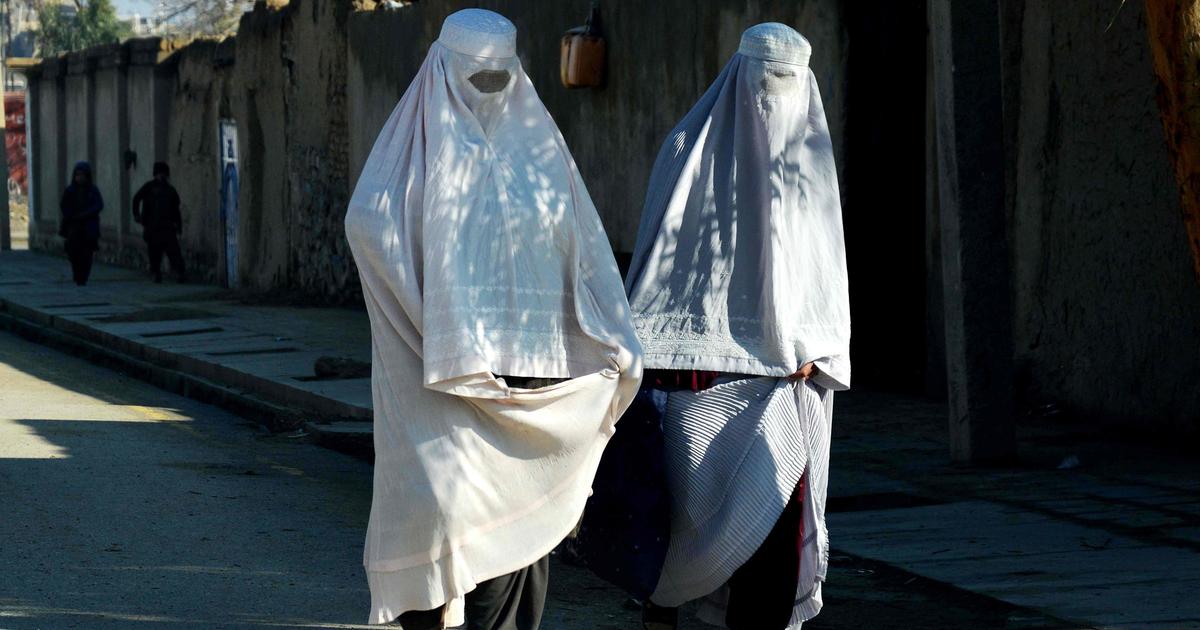Enlarge image
Bundeswehr evacuation mission in August 2021
Photo:
Marc Tessensohn / dpa
The emergency program for vulnerable Afghans initiated by Foreign Minister Annalena Baerbock is faltering.
According to SPIEGEL information, in recent weeks the Taliban have used repeated forms of harassment to prevent thousands of former local staff from German institutions, political activists and artists from leaving Germany, which had been planned at great expense.
According to internal figures, the Federal Foreign Office managed to bring 1,044 Afghans to Germany in July.
Originally, however, the intention was to allow 7,700 Afghans to leave the country from the beginning of July to mid-September.
In view of the increasingly strict controls imposed by the Taliban, however, this goal no longer seems realistic.
At the end of June, Baerbock publicly announced that she wanted to significantly accelerate the protection program for vulnerable Afghans who fear repression under the tough Taliban regime.
During the summer months, according to the Green Party politician, thousands of Afghans could leave the country, primarily via Pakistan, from where they would be taken to Germany by charter plane.
Internally, the plan at the time was to fly around 3,000 Afghans a month to Germany in July and August.
The forecasts were based on experiences from the spring.
In February and March, for example, more than 3,000 people in need of protection were flown to Germany together with their relatives.
In an emergency, even without a valid visa to Germany
Baerbock worked hard for the Turbo program.
In Pakistan, your office negotiated a corresponding agreement with the government so that Afghans can travel to the neighboring country without any problems and then quickly fly on to Germany.
After tough negotiations with the Ministry of the Interior in Berlin, the Federal Foreign Office also managed to allow Afghans in an emergency to travel to Germany without a valid visa and to only take care of the other formalities after arrival.
In the meantime, however, the optimism of June has turned to frustration.
Admittedly, the planned departure of thousands more Afghans had also been discussed with the new rulers via informal channels in Kabul.
In reality, however, the Taliban did not stick to the loose agreements.
Internal reports say that since the beginning of July, radical Islamist guards have stopped buses with people wanting to leave the country at the country's borders to Pakistan.
The attitude of denial escalated step by step.
At first, the Taliban only prevented individual people from leaving the country.
Shortly thereafter, the buses with people wanting to leave the country were no longer allowed through.
In the foreign office, there are currently few illusions that the situation will change in the coming weeks.
Nevertheless, one wants to continue to look for solutions or compromises.
After the Taliban took power in mid-August 2021, the German government rushed to launch a protection program for vulnerable Afghans.
Initially, it was about thousands of so-called local staff who had been working for the Bundeswehr or German institutions in Afghanistan since 2001.
Shortly thereafter, the Federal Foreign Office also created a so-called "human rights list" for political activists, journalists or artists who, like the local forces, have to fear repression by the Taliban and who, especially in recent months, have been reporting more and more about harassment and threats by the Taliban.
About 23,000 people were accepted via this list alone.
According to the federal government's internal statistics, around 10,000 Afghans who have already been accepted into Germany are still waiting to leave the Taliban's sphere of influence.
There are also around 1,800 other people who the federal government has promised to leave the country in recent months.
Since it was assumed that the program would accelerate at the end of June, the foreign office had increased the staff at the embassies in neighboring countries.
In Germany, the interior authorities are already preparing for between 3,000 and 4,000 Afghans to arrive in charter jets in July and August.
Committee of Inquiry after the summer break
At the end of June, Baerbock took stock of the so-called "Afghanistan Action Plan" to rescue vulnerable Afghans, which she had initiated shortly after taking office as Foreign Minister.
According to this, two-thirds of the people who had been accepted were in Germany at the time.
That's more than 21,000 Afghans.
It is no coincidence that Baerbock advocated speeding up the departure of endangered Afghans in early summer.
Due to the closed embassy in Kabul, the federal government does not have a precise picture of how severely the Taliban are repressing former local staff and political activists.
At the same time, it is clear that the situation for exposed Afghans who were politically active before the takeover of power has become significantly more dangerous in recent months.
With the turbo program, Baerbock clearly wanted to set himself apart from the policies of the previous federal government.
After the summer break, a parliamentary committee of inquiry will deal with the question of whether the federal government, led by Angela Merkel, started the rescue of the former local Bundeswehr forces and political activists too late in the summer of 2021.






/cloudfront-eu-central-1.images.arcpublishing.com/prisa/KA3LQ5ZEAFEQXOIZXJEEVDUZUQ.jpg)







